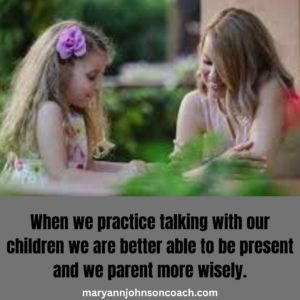 6 Tips for Talking With Kids
6 Tips for Talking With Kids
I have had some GREAT conversations with kids. There are always opportunities to practice this skill, and it is a skill. Part of the reason I have these great conversations is that I work at keeping the conversation going. I want to talk with them, I want to know what they think and feel about what is going on in their lives. I want to know them better. That is what makes a great conversationalist with kids of all ages.
How to keep the conversation going
A conversation goes much farther with a child when we do not impart our judgments or opinions. There is great value in focusing on a child’s feelings or reactions in any given situation rather than sharing what we think or feel. When we can listen without judgment, it helps kids process their emotions.
I laugh when I think of a conversation that a friend shared. She was riding in the car with her teenage daughter, and it went something like this:
“Mom”.
“What?”
“I don’t think I should have a baby now.”
“Is this a consideration?”
“I thought about it, but now I’ve realized something.”
“What’s that?”
“I only really want to buy lots of cute little baby shoes.”
“Oh, that’s very different from having a real baby.”
“Yeah, that’s what I think too.”
When this mom listened calmly, without judgment or sharing her own opinion, she found out what was really going on. It was all about cute baby shoes and not sex. She learned something about her daughter. The conversation lasted long enough to know what her daughter was really thinking.
Here is another example of listening without judgment or opinion.
“Mom, I don’t like David.”
“Hmm, why not?”
“He is dumb.”
“What happened to make you think that?”
“He pushed me off the swing.”
“Oh really? How was that for you?”
“Not good! I really wanted to swing, and it hurt my leg.”
“You didn’t get to swing.”
“No, and that wasn’t nice!”
“You got hurt?”
“Yeah! I would never do that to someone!”
Right after the words, “Mom, I don’t like David,” this mom could have begun a mini-lecture on why it isn’t nice to talk mean about our friends, and then she wouldn’t have discovered what her son was feeling or had experienced.
6 TIPS FOR TALKING WITH KIDS
- Ask open-ended questions. “How did that work out? How do you feel about that? What do you think you can do? How was that for you?
- Don’t offer your opinion.
- Give fewer judgments.
- Say fewer words.
- Help kids find their own feelings about their experiences.
- Rather than tell, ask.
These tips will help your child develop emotional awareness and a strong inner compass. It will help them choose their behavior even when no one is there to evaluate and give them feedback. There is always time to revisit a conversation if teaching is needed, but for now, listen, be interested, and ask good questions.


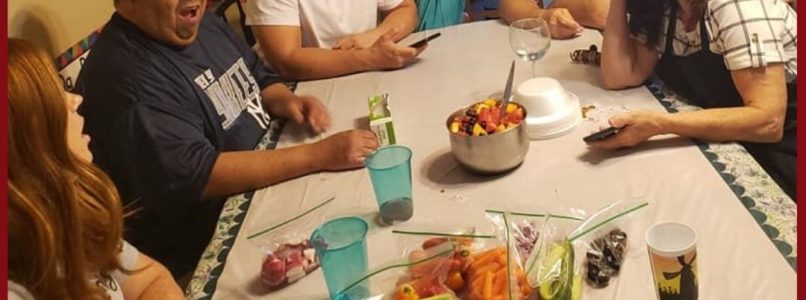
 My sister flew to Philadelphia to see her son and his family. Michael picked her up at the airport, and they drove to New Jersey. He is in the military, and she was very anxious to see them all.
My sister flew to Philadelphia to see her son and his family. Michael picked her up at the airport, and they drove to New Jersey. He is in the military, and she was very anxious to see them all.
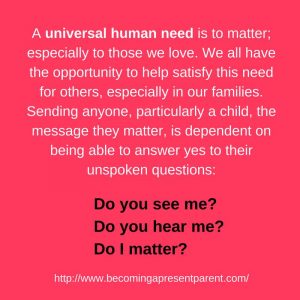 When we moved to Laurel, Montana over 3 decades ago it was a jolt. We had lots of little kids and we didn’t know anyone. We had no family in Montana and no one we knew had ever lived there.
When we moved to Laurel, Montana over 3 decades ago it was a jolt. We had lots of little kids and we didn’t know anyone. We had no family in Montana and no one we knew had ever lived there.
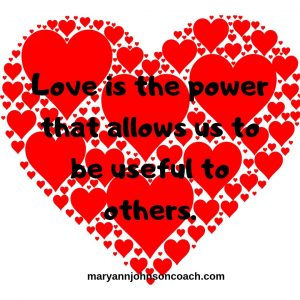
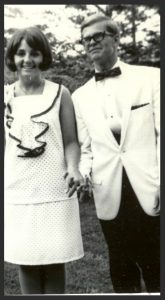 I’ve been married to the same man for 48 years. We celebrated this milestone in May of 2019. This has caused me to pause and contemplate the last fifty-one years. That’s how long I’ve known my husband, Don. I fell in love with him because he was handsome and romantic. One day he showed up at my door with a car full of roses. He had cleaned out a street vendor! But that isn’t why I’ve stayed with him.
I’ve been married to the same man for 48 years. We celebrated this milestone in May of 2019. This has caused me to pause and contemplate the last fifty-one years. That’s how long I’ve known my husband, Don. I fell in love with him because he was handsome and romantic. One day he showed up at my door with a car full of roses. He had cleaned out a street vendor! But that isn’t why I’ve stayed with him. me. He often goes out of his way to do something he knows I need to have done. He looks at me when I am talking to him. He takes the time to listen. He doesn’t always get what I am saying but he listens and tries. : ) He often puts his needs ahead of mine.
me. He often goes out of his way to do something he knows I need to have done. He looks at me when I am talking to him. He takes the time to listen. He doesn’t always get what I am saying but he listens and tries. : ) He often puts his needs ahead of mine. There is a space between stimulus and response. Sometimes it’s so narrow that you would swear it isn’t even there. But it is and you can learn to recognize the moment of choice. You will still respond poorly for a time, but eventually, that space between stimulus and response will get wider and you will have time to choose a better response. I promise this is true!
There is a space between stimulus and response. Sometimes it’s so narrow that you would swear it isn’t even there. But it is and you can learn to recognize the moment of choice. You will still respond poorly for a time, but eventually, that space between stimulus and response will get wider and you will have time to choose a better response. I promise this is true! I have a photo of my daughter Jenny who is in her forties. It was taken when she was around six. Recently, I was looking at it and experienced a very tender moment. In those early parenting days, I loved my children. However, this photo reminded me that at that busy time of life I did not realize how sweet and precious they were; that the opportunity I had been given to be their mother was not just a responsibility or a job, but a gift, one of the greatest.
I have a photo of my daughter Jenny who is in her forties. It was taken when she was around six. Recently, I was looking at it and experienced a very tender moment. In those early parenting days, I loved my children. However, this photo reminded me that at that busy time of life I did not realize how sweet and precious they were; that the opportunity I had been given to be their mother was not just a responsibility or a job, but a gift, one of the greatest. parented. I was driving across our small town and was miraculously alone. Off to my right, as I glanced down the street, I saw a small girl skipping along towards me. I saw her sweet little face and feet as she firmly planted each step. Then without warning, I saw that child as I had never seen another human being. It was as if she was clothed in a light that had previously been hidden from me. It was overpowering and I cannot express the feelings that filled my heart. I began weeping. I had seen the beauty of another human being. She was far more beautiful and precious than I had ever imagined any person could be. It was a gift to help me on my way.
parented. I was driving across our small town and was miraculously alone. Off to my right, as I glanced down the street, I saw a small girl skipping along towards me. I saw her sweet little face and feet as she firmly planted each step. Then without warning, I saw that child as I had never seen another human being. It was as if she was clothed in a light that had previously been hidden from me. It was overpowering and I cannot express the feelings that filled my heart. I began weeping. I had seen the beauty of another human being. She was far more beautiful and precious than I had ever imagined any person could be. It was a gift to help me on my way.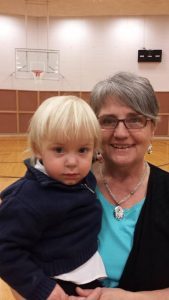
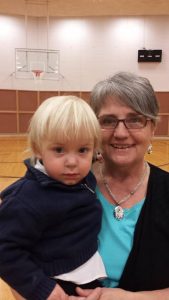 As you know I have been writing a new book – Becoming a Present Parent: Maximizing Presence in Five Minutes or Less. I started in August 2015 and finished in January 2016. Since then I have been learning the dance of being an independent author. Whew, it has required a lot of dance lessons!!
As you know I have been writing a new book – Becoming a Present Parent: Maximizing Presence in Five Minutes or Less. I started in August 2015 and finished in January 2016. Since then I have been learning the dance of being an independent author. Whew, it has required a lot of dance lessons!!